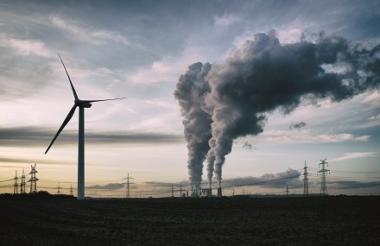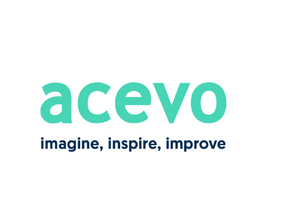Charities are part of the “ecosystem” required to tackle the climate emergency and could have a complementary relationship to more radical movements like Extinction Rebellion, ActionAid International's climate change lead has said.
Harjeet Singh, global lead on climate change at ActionAid International was speaking at Civil Society Media’s Spring Summit, as part of the closing keynote about confronting the climate emergency. He was joined by Myles Allen, professor of Geosystem Science at the University of Oxford, Clare Farrell, co-founder of Extinction Rebellion and Beccy Speight, chief executive at the RSPB.
Singh said that part of the criticism around charities not engaging enough in the climate emergency is fair, “but we also need to understand that part of it is a design problem”.
He said: “Going back several years, and even in some recent cases, the charity sector still sees climate change as a sector, and we have adopted an incremental approach like we have been doing in other sectors like education and health”.
Singh said issues require deeper political analysis, “we need to recognise that climate change, being an existential issue, requires a very different treatment. And that did not happen.”
“We failed to recognise that it is the economic system that is behind this environmental crisis and the climate crisis,” he added.
This is why the charity sector is blamed and has “delayed action in many ways”, as it “fell way short of the political momentum that was needed to tackle an issue like climate change”.
Nonetheless, Singh said, “the sector has also made a huge contribution”. This is in terms of “research both scientific and grassroots level, capacity building training, building awareness on this issue, planning and developing several implementation frameworks and tools, experimenting several models which can now be scaled up”.
Therefore, “the important thing is that we are part of that ecosystem that is required for change. What we need is self-awareness, we need to know our strengths, our weaknesses and limitations, and we should not exist for ourselves, we need to see what role we can play in that change ecosystem, particularly in the field of climate change.”
Extinction Rebellion co-founder: ‘Ways of dealing with problems in the world need to be radically rethought’
One of Extinction Rebellion's first actions was to stage an occupation of Greenpeace headquarters, as some members felt it had failed to ignite the actions needed to tackle climate change.
Clare Farrell, co-founder of the group, said: “The nature of this crisis, the nature of the risk that we're in, means that you do need to consider whether the norms of society, the institutions, the organisations, and the ways of dealing with problems in the world, need to be radically rethought.”
For Farrell, the problem with some charities who do direct action is that they have a significant duty of care, and must do a lot of training, “because they are a charity and they've got legal status and all the rest of it”.
She said: “The question that I have for this whole space is at what point are you going to as an organisation, get the courage to say, it is time for ordinary citizens to go out on mass and break laws?”
Singh said: “The responsibility that an organisation and a legal body has, is to take care of its own staff because you have made that commitment to that staff”. Nonetheless, he suggested charities should be working closely with these groups, because “they and us are very important parts of that change system,”.
He suggested that charities could “still do a lot more” and can “always push those boundaries and see how we can work closely with such movements, and we can have a very complementary relationship”.
“We haven't had that discussion enough, around what are those boundaries, how far we can actually go,” he said.
Ultimately, “we require system change thinking and not sectoral, not siloed-sectoral,” he said.
RSPB CEO: We have a role in holding governments to account
Speight, chief executive at RSPB, said the recent climate protests “really changed how we think about working in this ecosystem” and it “definitely pushed our boundaries,”.
She added: “We do know what we have to do. The real issue now is making sure that we take that action on a systemic level in order to do that and holding governments to account, and creating the space to do that is something that we all need to work on.”
She added: “The climate crisis is absolutely combined with a biodiversity crisis, and actually, an inequality crisis as well. Those three things are very interlinked and I think sometimes by talking shorthand about the climate crisis we miss the opportunity we have to actually build a much better world.”
For Speight, “we have to talk to people about the way these things are interlinked and make that really clear” and “not shy away from saying how serious it is”.
Allen added: “For many of us, wealthy Westerners in our lifetimes, we can probably insulate ourselves from the effects of climate change, almost entirely. And that's the uncomfortable truth, that it will be killing people in some parts of the world, a long time before it's even noticeable in others.”
He said: “Something I think charities could play a much bigger role in is actually getting involved in the debate on what climate change is doing already. Charities like ActionAid have played a big role in this in drawing attention to the question of when a disaster is unfolding somewhere what is the role of climate change in that disaster.”
Singh echoed this sentiment, saying the discussion needed to loop in social justice.
He said: “I think it's really important for us to bring the aspects of environmental justice and social justice together,” as they “go hand in hand.”
Charities must look at this moment as a huge opportunity because of the upcoming 2021 United Nations Climate Change Conference, which is taking place in the UK, the panel added.
“We have to demand meaningful actions, which are going to bring in that transformation,” Singh said.
Speight said: “Every charity has a very clear purpose, but that purpose needs to be delivered in the context of today. The context of today is absolutely very, very different to anything we have known before. So I would invite every charity to look at how it is going to deliver its purpose within that context, and how it is going to frame its purpose within the climate biodiversity and inequality crisis,”.
This is part of being “aligned as a charity” as everything from a charity’s endowments to its policy should take this into account.
She noted that charities have historically asked for time, money and voice. Now, it is time, money, voice, action.
“I think if every charity did that, then that would make a huge contribution in terms of civil society mobilising to really address this fundamental issue of our times,” she said.
Related articles












